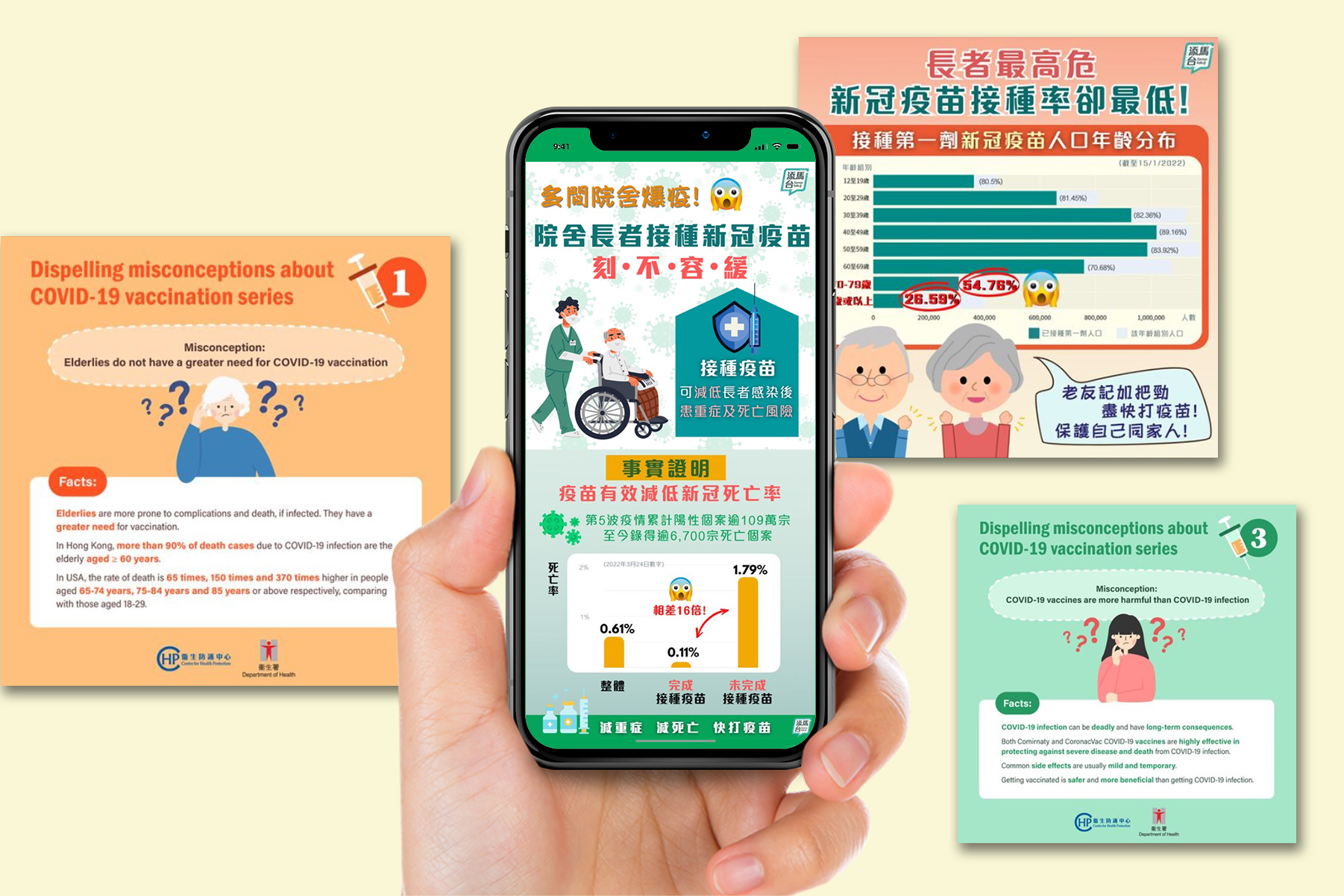Discover HKBU
Getting the right information
26 Apr 2022


Despite the record high number of confirmed COVID-19 cases, the vaccination rate in Hong Kong lags behind its peer countries. From the perspective of public health communication, exposure to misinformation about COVID-19 vaccines can reduce the public’s intention to get vaccinated, and it is crucial for the public sector to debunk the misinformation in a timely and effective way while also providing clear and feasible guidance as well as cues to action.
In a recent study, Dr Zhang Xinzhi, Assistant Professor of the Department of Journalism, and his team examined the frequency and nature of the delivery channels used to share COVID-19 vaccine misinformation messages in Hong Kong in a one-year span, from Jan 2021 to Mar 2022, and they reviewed the rumour-clarification and debunking practices of the public sector.
Dr Zhang found that the debunking posts issued by the public sector largely focused on the negative aspects, such as the side effects of the vaccines, personal difficulties, and the stigma associated with the vaccination process as well as the severity of COVID-19. On the other hand, positive content such as the potential benefits, cues to action and self-efficacy, which leads to behavioural change in people, was relatively less frequent. He says, “If fear is triggered, without guidance and encouragement at the first step of the vaccination process, fear arousal will backfire and may have unintended effects.”
The study also showed that only around 20% of the clarification posts contained traceable external sources, which are crucial in facilitating transparency and rational arguments. Meanwhile, the coherence between the evidence and argument is also important. For example, in the argument “As the elderly are more prone to complications and death after contracting COVID-19, the elderly need to be vaccinated against COVID-19,” while data from the World Health Organisation and other countries about the complications is provided as supporting evidence, there is no information about the vaccination status of the reported COVID-19 death cases who are over the age of 65 in Hong Kong.
Based on the analysis, the project team has made several suggestions. This includes more focused messages for the respective target audiences, as well as more cues to action and posts on self-efficacy that can be added to promote vaccination and help people with informed guidance and choice. Debunking posts should also be more coherent, and they should be supported by traceable external sources as well as relevant figures and evidence.
For details of the study, please click here.